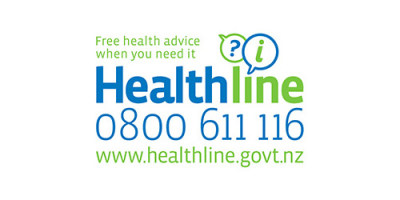Springtime Nutrition
Springtime is the start of an exciting new planting season!
It is time to remove the last winter crops from your veg patch to make room for new season plants.
Starting seeds in containers on a warm sunny porch or in a greenhouse can be a great head start. By the time the ground warms up in October or early November your seedlings should be ready to plant out.
Different ways to sow seeds:
Sow seed directly
Sow seed directly into well-drained garden soil or outdoor containers filled with fresh planting mix. Some suitable vegetables include Peas, Lettuce, Rocket, Silverbeet, Spinach, Microgreens, Beetroot, Radish, Carrots, Parsnip, Coriander, Parsley, Chives, and Potatoes.
Sow seed in trays
Sow seed in trays or punnets for planting later: Broccoli, Cabbage, Cauliflower, Basil, Silverbeet, Fennel.
The container garden
Spring is great for growing veggies in large pots and planter boxes. Whether you plant seeds or seedlings, at this time of year they grow faster in the warm, well-drained potting mix than in soil that’s still cold and damp from winter. Don’t forget that veggies grown in containers need regular watering and feeding.
Microgreens are quick and easy to sow in containers. Place them on a sunny windowsill and within two weeks you will have a nutrient-dense crop to add zing to your meals.
Maramataka resource - gardening tips for each month of the year:
Here is an awesome planting maramataka resource. Although designed with some tips for planting in the classroom, this can also be used when you are planting in your home or community.

Affordable non-perishable meals
Te Whatu Ora - Nelson Marlborough's nutritionists designed the non-perishable 'Meal in Minutes' Kit to provide whānau with affordable, balanced, and easy-to-make food options when money is tight, cooking facilities are limited or in preparation for emergencies.
The resource is designed to help community agencies and food banks with food provision ideas and to encourage ‘balanced meal’ donations for people wanting to help.



Listen: Meal in Minutes Project on The Breeze:
Featuring Health Promotion Manager Lauren Ensor and Public Health Nutritionist Vicky Stedman.
Read the press release about the Meal in Minutes Kit Project
Wintertime Nutrition - 5 Key Messages
Food poisoning & gastro outbreaks
The Nelson Marlborough Public Health Service works with the Ministry for Primary Industries to prevent the spread of diseases caused by food poisoning, when a link to a food premise (e.g. a restaurant) has been confirmed.
Diseases caused by food poisoning include gastroenteritis, salmonella, listeria and campylobacter. They are confirmed when a GP (doctor) sends a stool (poo) sample to a laboratory for analysis.
GPs and laboratories are legally required to notify the Public Health Service when a disease is confirmed.
What is food poisoning?
Food poisoning is the term used when someone becomes ill after eating food or drink containing harmful bacteria, viruses, fungi, parasites, toxins or natural contaminants. It is also known as 'food-borne illness'.
It can occur when food has been incorrectly cooked, stored or handled. Young children, pregnant women, the elderly, and people with other illnesses may be more susceptible.
The risk of food poisoning can be reduced by following safe food handling advice (see links below).
Read about food poisoning symptoms and prevention on the Health Navigator website.
Other complaints about food
Any other concerns about food, unrelated to food poisoning, should be referred directly to the Ministry for Primary Industries.
This includes complaints about:
- foreign objects
- incorrect or misleading labeling
- food sold past its use-by date
- undeclared allergens
Ministry of Primary Industries website: How to make a complaint
Community initiatives
Food banks and community food organisations:
If your whānau is experiencing hardship, connecting with a Community Food Organisation can make all the difference. Search for support by location on Kore Hiakai: Zero Hunger Collective
Community produce boxes:

If you’re local to Nelson: Hapori Fruit & Veg box is an initiative run through four pick-up hubs. These are $15 boxes of fruits and vegetables sourced from mainly local growers by the Nelson Environment Centre that provide nutritious food at a heavily reduced price compared to supermarkets.
You can register and pay online:
Sign up for the Hapori Fruit & Veg Box
Tips to eat well for less
Health Navigator have pulled together 11 top tips for ways to eat well for less, including:
-
Choosing in season fruits and vegetables grown in New Zealand, like broccoli, carrots, kumara, and kiwifruit is not only more budget-friendly, it’s healthier.
-
Frozen and canned fruit and vegetables are healthy and affordable alternatives to buying fresh. Produce is canned or frozen soon after being harvested, so they retain their nutrients











